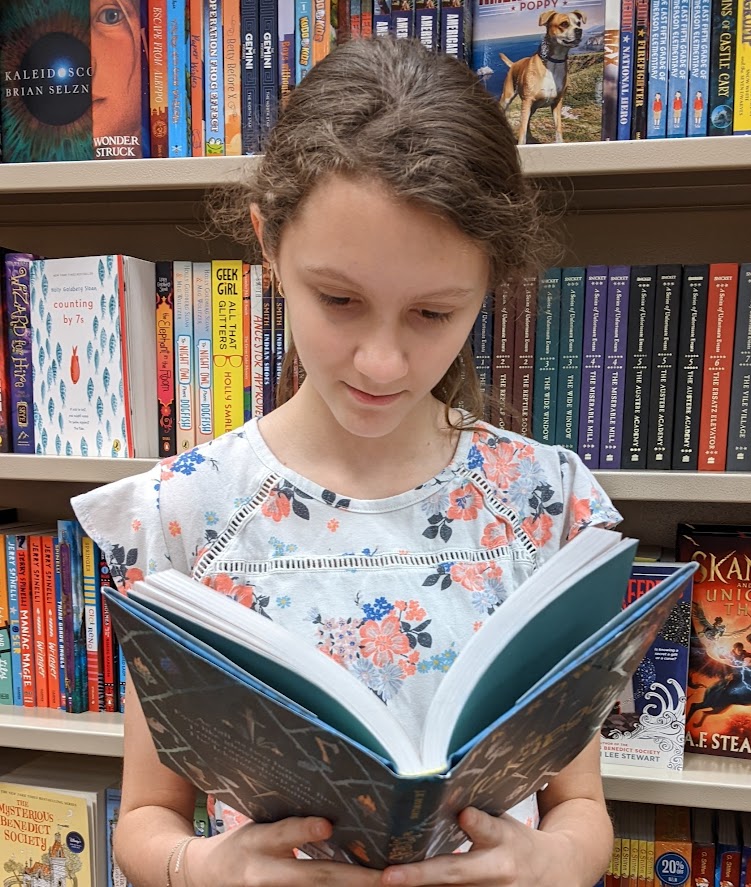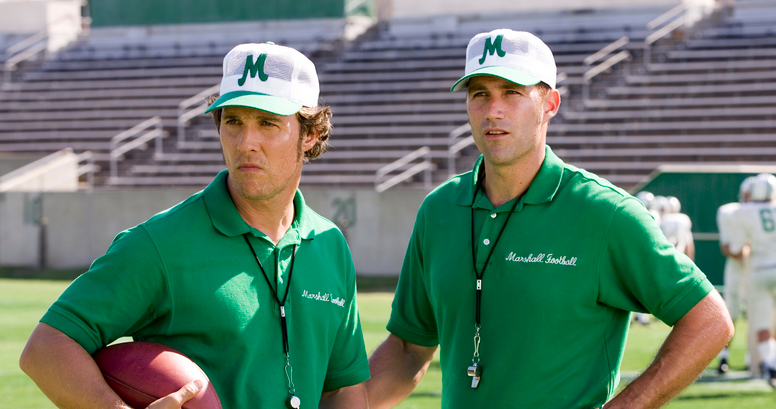Some character deaths hit harder than others. There have been hundreds of dramatic death scenes, some which have caused readers all over the world to curl into a ball and cry, or maybe just stare at a wall for a few hours feeling sad. These are the types of deaths every author wants to write about, the kind that feels like a punch to the gut every time they’re remembered, the kind that resonates for years to come.
On the opposite end of the spectrum are the ‘boring’ deaths. Sure, death in general is still sad, but when it comes down to it, your reader isn’t that upset about a character because they just don’t care. We can all agree that some deaths hit harder, but what most people don’t know is why. Of course, it’s imperative that the character be lovable and relatable but beyond that, there is a more external device that can make any reader cry their heart out and cause them to collapse into a pile of tears. One movie that used this device really well was We Are Marshall. Today, we’ll be exploring what made its viewers cry and how you can put the same story ingredients into your next tragic death.
We Are Marshall
Sports movies don’t usually make me cry. However, We Are Marshall was different. It explored so many more themes than just the classic loser-to-winner troupe and ultimately created a powerful, emotional movie.
It starts like most feel-good sports movies do, with a team losing a game and getting yelled at by their coach. ‘Winning is the most important thing!’ The head coach declares, making the players of the Ohio college football team feel even worse than they already were. Right off the bat, I have no reason to care for these cardboard-cut-out players. They don’t have any flaws and seem to be living the perfect life outside of their losing streak. One jock is engaged to a woman named Annie, the other is making his father proud and altogether the only problem anyone seems to be struggling with is their failing team.
The whole team hops on a plane, a bit deflated but glad to be going home. At this point in the film, I began to yawn. I could point out exactly what was going to happen next. Someone would inspire the team to do better, they would go through a training montage, they’d lose, the coach would suddenly realize that winning isn’t everything, but, despite this, the football team would win the ultimate championship anyways. All the characters would be strong and good-looking, honestly pretty flat personality-wise, but…
Oh.
Wait.
In an unexpected twist, the entire football team is suddenly dead. Their plane crashes. Goodbye, predictability.
The rest of the movie is spent following the surviving friends and family, the players who weren’t on the plane, and that previously mentioned dad as they all struggle with their grief. But the death of the players wasn’t the saddest part. The deaths were definitely the hardest part for the characters, since they had known those players personally, but, as viewers, we didn’t know them and had no reason to care. However, as the movie progressed, the writers dropped two little tear-jerking symbols that truly made me cry and made up for this lack of caring.
Beer Cans
Right at the beginning of the movie, the first device was set up. One of the football players called his friend just before he hopped on the plane and told him to buy them some beer so they could celebrate when the team got home. This friend obediently went and bought a pack of beer cans late at night.
But the team never came home.
There was no celebration.
The friend left the pack of beer unopened and untouched for months. And every time the camera cut to that single item, it made the viewers want to cry. Why? Not because we personally knew the characters that had been lost, even though that would’ve been effective as well. It was because this small symbol, while later representing the difficulties of moving on, also showed the character’s grief and struggle and made you sympathize with him more.
Wedding Ring
The second device was Annie’s engagement ring. It comes up multiple times throughout the film, and each time felt like a punch to the stomach. Without her fiance, Annie now feels completely lost in life and has nowhere to go except back to her normal life as a waitress. There, she has constant run-ins with her late finance’s father, who is almost as depressed as Annie.
One day Annie, in a mess of tears, approaches the father and tries to return her engagement ring, saying that it rightfully belongs to his family. The man, annoyed by her sobbing, replies:
“What family?”
This one scene in particular has so much power that is only amplified by the presence of the wedding ring. As that small token shows up over and over, it constantly reminds the viewers of what was lost and what never came to be.
Both of these devices do such a great job at making the viewer sad and keep the tragic deaths from being dry and meaningless. They take simple, everyday objects and use them to show something unfinished. That unfinished thing doesn’t have to be beer cans or a wedding ring, either. It could be a project the character was working on, a food that they really liked, or practically anything you want. The only thing that matters is that an object means something to your character, and therefore your reader as well. Though there are many other ways to make your reader cry, this is one of the best devices to invoke tears and make your readers mourn for characters they didn’t even know.



What stories have brought you to tears? What other objects have writers used to make you mourn for their characters? What is the most tragic death you’ve read, and why? And how was this article? Too sweet? Too sour? Just right?


Hello, I’m Sophia! I’m a child of God and I (if you couldn’t tell already) love to write! I’m also a total theater kid and strong dessert (specifically cupcake) enthusiast. For as long as I can remember, I’ve enjoyed both reading and making my own stories. I’m so glad I get to share with you what I’ve learned from some of my favorite (or sometimes least favorite) stories on this blog.


Oh my… Oh my goodness, this is so true. I just watched a show with a major character death, and I completely agree that it wasn’t the death that hurt the most. It was the person’s “personal belonging” that hit me. Especially when the antagonist returned it to the victim’s family members. *sob* Very good job, Sophia.
You’re welcome! 😀
Aw thank you so much Dena! This comment really made my day (: I hope this article helps you to wright sadder deaths!
A story that comes to mind is The Return of the King, when Frodo and Sam are climbing up Mount Doom to destroy the Ring, and Frodo is too weary to carry on. When Sam picks up Frodo, and carries him up the mountain, despite his own exhaustion, my eyes always fill with tears: it is an act of such love and selflessness.
The most tragic death I’ve read might be Janner’s death (from The Wingfeather Saga), when he sacrifices his life for his brother’s, fulfilling his role as throne warden up to the very end.
Yes! That moment is one of the best emotional scenes out there! Ack, and don’t even get me started on Janner’s death. That one really gets me every time. (Although there is hope that he’ll live, so that’s good!)
I hope this article helped you to write some sad scenes of your own!
-Sophia